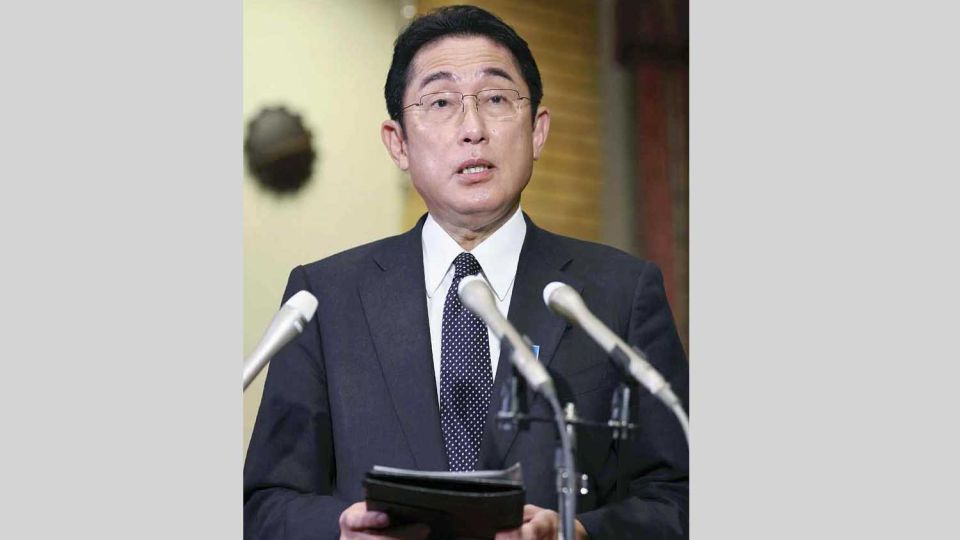November 22, 2022
TOKYO – Prime Minister Fumio Kishida returned home Saturday from an eight-day visit to Southeast Asia, during which he held bilateral summits for the first time in three years with the leaders of China and South Korea.
He mainly attended a series of international conferences in which he called for unity ahead of the G7 summit to be held in his constituency of Hiroshima next year. Yet it remains to be seen whether his latest trip abroad will help buoy his administration, which has been hit by a recent string of Cabinet members being forced to resign.
“Protecting Japan and maintaining the people’s peace of mind; I was able to take important steps forward in advancing this mission,” Kishida said, emphasizing the results of his visit during a press conference with reporters from around the world on Saturday in Bangkok. Besides Thailand, he also visited Cambodia and Indonesia.
Kishida held in-person summits with several world leaders, most notably with Chinese President Xi Jinping and South Korean President Yoon Suk-yeol.
Although steps were taken toward improving bilateral relations between these parties, they failed to fill in the gaps between them in resolving their pending issues.
During his talks with Xi, Kishida conveyed Japan’s “grave concern” about China’s hegemonic moves regarding Taiwan and the Senkaku Islands in Okinawa Prefecture. Xi wouldn’t hear of it, however, saying that he would not accept any interference in the internal affairs of his country.
As for Kishida’s summit with Yoon, the two leaders only confirmed that they would “pursue an early resolution” of the issue of regarding wartime requisitioned workers from the Korean Peninsula.
Through these talks, Kishida confirmed that Japan would continue to communicate closely with the two neighbors. Nevertheless, some within his Liberal Democratic Party said that Japan has only arrived at the starting line toward improving bilateral ties.
Kishida has, however, been able to have Japan’s assertions be understood widely by other nations through his attendance at the series of international conferences. At the East Asia Summit on Nov. 13, he criticized China by name, saying that “China’s activities that infringe upon Japan’s sovereignty have been continuing and intensifying in the East China Sea.” In response to his remarks, other participating leaders also pointed out the importance of freedom of navigation in the South China Sea.
One of the objectives of Kishida’s visit was to lay the groundwork for the G7 summit to be held in Hiroshima next May, with Japan serving as the chair. At the G20 summit, in light of Russia’s ongoing aggression against Ukraine, the summit declaration clearly states, “The use or threat of use of nuclear weapons is inadmissible.” This was made possible in part through the efforts of Japan.
“This will lead to discussions toward nuclear disarmament at the Hiroshima summit,” Kishida said at a press conference.
Late former Prime Minister Shinzo Abe had been active in summit diplomacy, taking advantage of the stable base for his administration that he had developed through efforts such as winning national elections. Kishida, however, has been forced to manage his administration with difficulty, as indicated, for instance, by the fall in his Cabinet’s approval rating.
Following the dismissal Sunday of Internal Affairs and Communications Minister Minoru Terada, some within the LDP are saying that Kishida can no longer achieve his initial goal of making up for the loss in approval with the results of his trip.

